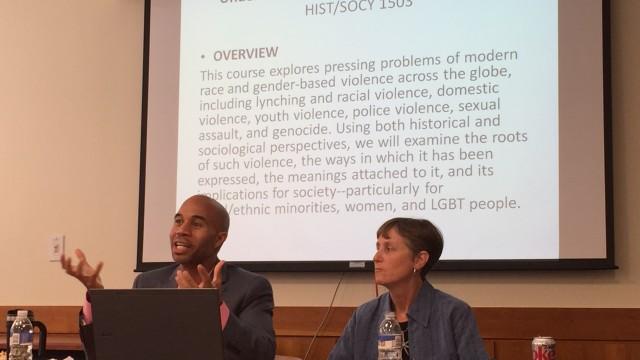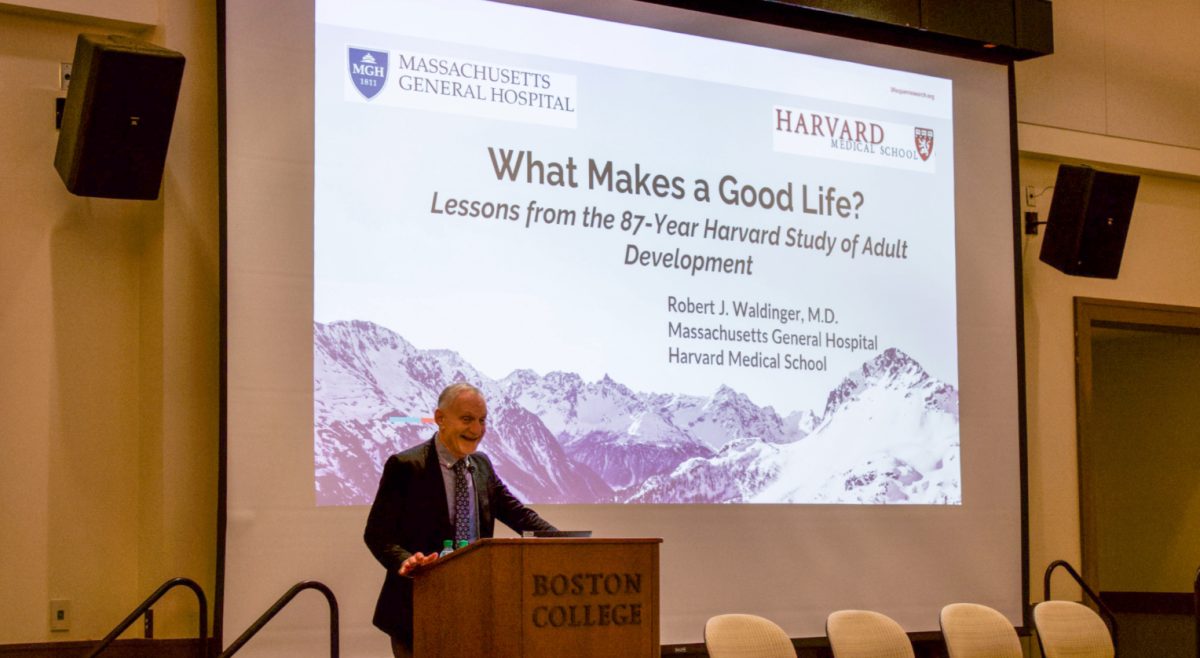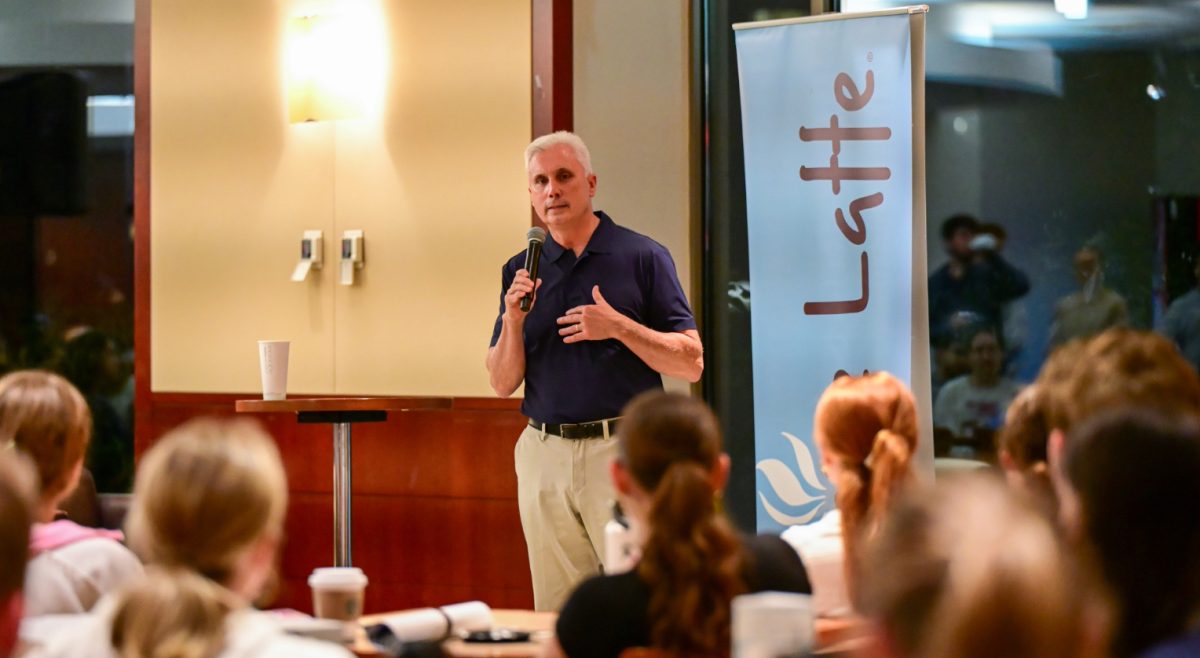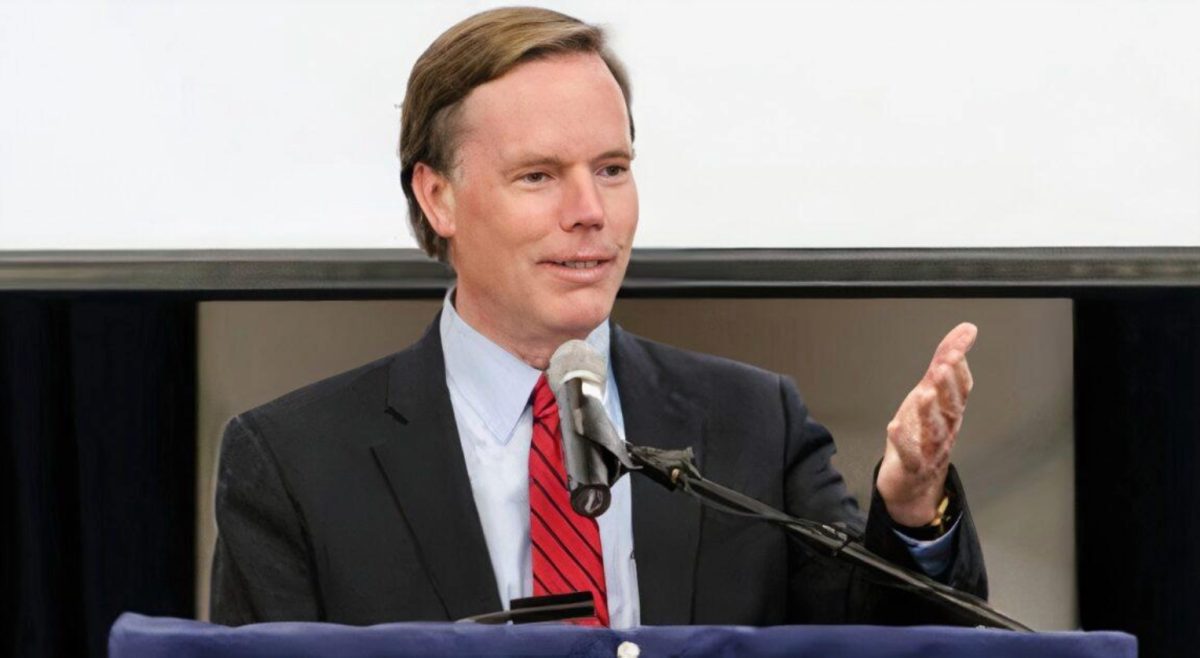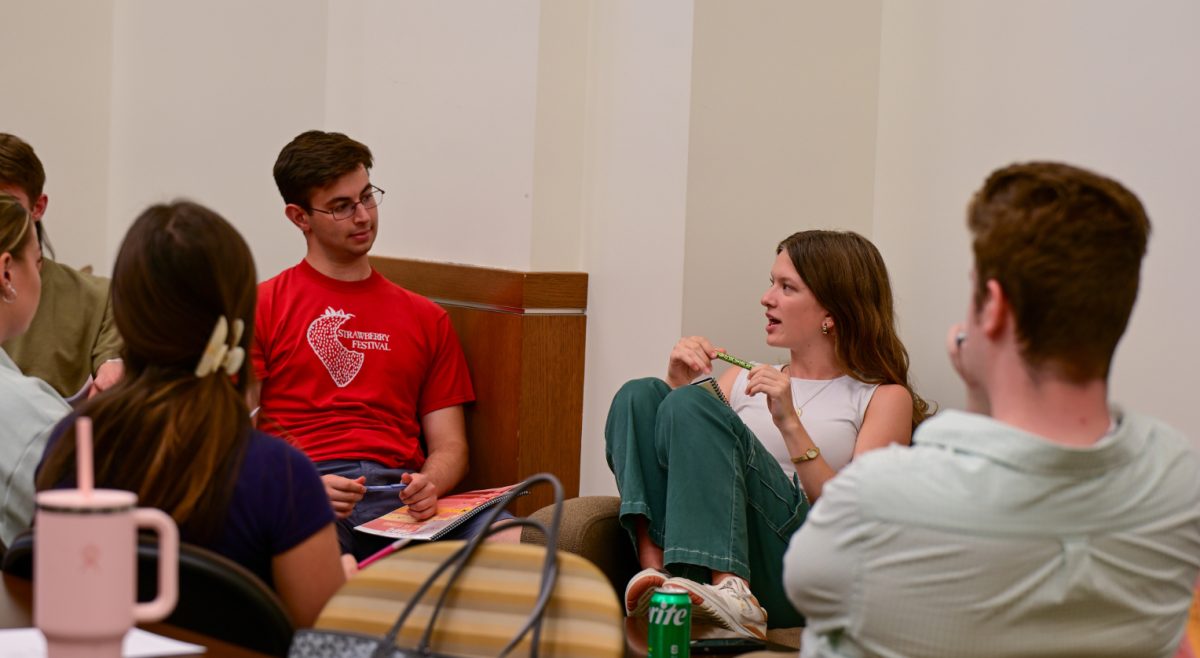Those who are not oppressed still need to discuss oppression, said Shawn McGuffey, associate professor of sociology and African & African diaspora studies, on Oct. 30.
McGuffey spoke with his co-teacher, Lynn Johnson, as part of the “Conversations on ‘Race’ and Racism” series held by the Center for Human Rights and International Justice (CHRIJ) at Boston College. About 50 people were in attendance. The CHRIJ holds a lecture series every year, but previous talks focused more on human rights issues outside the United States borders.
The institute brings together researchers, teachers, and practitioners in the BC community who hope to shape a new generation of scholars who are more capable of effectively responding to human rights issues both nationally and internationally. Posters sponsoring this event, created by Eradicate Boston College Racism, were not approved to be posted around campus, according to members of Eradicate Boston College Racism.
Johnson, an associate sociology professor, teaches a new course with McGuffey titled Understanding Race, Gender and Violence. The two spent the hour explaining their approach to teaching controversial topics.
“White privilege is your history being taught as part of the core curriculum, while mine is being offered as an elective,’” McGuffey said. “This is a statement you have probably heard before.”
McGuffey acknowledged this as a common belief that minority students on campus hold in relation to the composition of the core curriculum. His concern was that most of the courses—especially the history ones—offered by BC to satisfy the core were taught with a focus on white people. Thus, he saw a need in the community, and felt driven to change it by forming this class. He hoped it would provide students who are not necessarily majoring in African & African diaspora studies to open their historical education up to different perspectives.
“White privilege is your history being taught as part of the core curriculum, while mine is being offered as an elective. This is a statement you have probably heard before.”
McGuffey went on to describe the prevalent instances in which professors across the nation—particularly professors of color—needed to tailor their courses so as to not make white students uncomfortable. This was a subject that he found to be significant, as he struggles with this type of problem daily. He said that being a black teacher on a predominantly white campus creates a dynamic in which he must be very careful in the construction of his teaching methods.
“Even before you pass out the syllabus, perceptions are part of what’s going on in the teaching classroom,” McGuffey said.
He explained that the stereotype that only white students major in sociology and only black students major in African & African diaspora studies holds some truth.
As a black professor teaching both areas of study, he acknowledged that his African & African studies students rate him higher than his sociology students do at the end of every semester. He thinks this is most likely the result of the way each group perceives the color of his skin. With a laugh, however, he acknowledged that both groups do rate him fairly well.
McGuffey used this point as an example of the kind of ingrained racial judgement that exists on BC’s campus and needs to be remedied through courses such as the one he is currently teaching with Johnson.
When he finished speaking, McGuffey turned the attention to Johnson, who began to describe her own experience as a white, female professor teaching a course on race, racism, and violence in the U.S.
“The intersectional approach we are taking to the class forces us to think in terms of these multiple overlapping identities to help us understand how people deal with these different types of violence,” Johnson said.
She explained the difficulties that lie in striking the right balance of information, and her own personal weaknesses in covering enough material about Latino and Asian studies. She also found it difficult to appropriately include LGBT issues in the historical discussion, as she still needs to do more work in exploring the subject.
“The danger is that there is a lot to cover,” she said.
After they discussed their specialized, collaborative approach to teaching, McGuffey and Johnson fielded questions from the audience. Responding to these further inquiries about the struggles they have encountered in their instruction, they recognized the problem of working with students who disagree with or close their minds off to the ideas being introduced in their classes. McGuffey replied simply that he has had such experiences, but that there are so many other enthusiastic students who are willing to learn that his energy is ultimately better spent on their education.
Another issue that arose in one audience-member’s question was the problematic lack of on-campus support when it comes to students finding current events about race to trigger strong, emotional reactions. Several attendees voiced their frustration with faculty members for failing to acknowledge the weight of such events, and the experiences of minority students in general.
“If you ever need extra support—need an advocate—we want you to come in.”
At that time, Dean of Students Thomas Mogan stood up to agree that this is a concern on campus, but that the Office of the Dean of Students is taking steps to address it.
“If you ever need extra support—need an advocate—we want you to come in,” Mogan said.
He briefly spoke about how his office breaks down its list of students into racial categories, and makes efforts to meet with them to discuss their individual experiences on campus. He then gave his card to the student who first expressed her desire for the faculty to be more active.
The protest by the Eradicate Boston College Racism Movement a week ago at the Ta-Nehisi Coates talk came up later in the discussion. During the event, a group of students stood up with tape over their mouths. This demonstration was meant to represent the University’s attempt to silence the expressions of pain coming from students of color in the BC community, as well as in the greater sphere of society.
“It was one of the most proud moments I have ever had as a professor at BC,” McGuffey said, expressing his approval of the protest.
Featured Image by Shannon Longworth / Heights Staff

